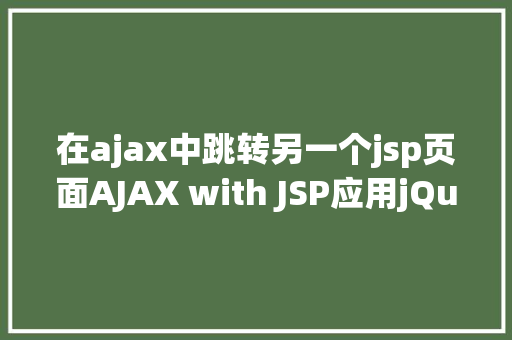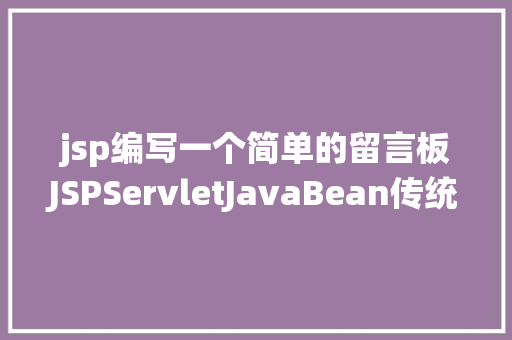这一篇紧张是来详细剖析php7.0的新增功能。
一、性能与底层
PHP7速率是 PHP5.6 的两倍

php7 最显著的变革便是性能的极大提升,已靠近Facebook开拓的PHP实行引擎HHVM。在WordPress基准性能测试中,速率比5.6版本要快2~3倍,大大减少了内存占用。PHP7在措辞上也有一些变革,比如添加返回类型声明、增加了一些新的保留关键字等。在安全方面,去除了PHP安全模式,添加魔术引号等。不仅如此,新版还支持64位,而且包含最新版Zend引擎。
测试一下
很大略的一个例子,天生一个 60 万元素的数组,通过查找key 的办法,来确定key是否存在。
<?php
$a = [];
for($i=0;$i<600000;$i++){
$a[$i] = $i;
}
foreach($a as $item) {
array_key_exists($item, $a);
}
我们分别在php5.6.11和php7.0.4来测试下性能。
php5.6.11
➜ time php 1.php
0.67s user 0.06s system 67% cpu 1.078 total
➜ time php 1.php
0.68s user 0.06s system 98% cpu 0.748 total
➜ time php 1.php
0.65s user 0.06s system 67% cpu 1.052 total
三次均匀下来,大致是 user利用 0.65秒,system利用0.06秒,67%的cpu率。统共1秒旁边。
再看php7的情形
➜ time /usr/local/opt/php70/bin/php 1.php
0.52s user 0.02s system 98% cpu 0.544 total
➜ time /usr/local/opt/php70/bin/php 1.php
0.49s user 0.02s system 99% cpu 0.513 total
➜ time /usr/local/opt/php70/bin/php 1.php
0.51s user 0.02s system 98% cpu 0.534 total
比拟下来,user利用韶光低落20%旁边,system利用韶光低落70%,cpu利用率更高高达98%。总体韶光减少为。0.5秒。
这个例子看下来,效率供应了2倍。确实不错。
再看一个例子。同样也是天生一个 60 万元素的数组,查找 value是否存在。
<?php
$a = [];
for($i=0;$i<600000;$i++){
$a[$i] = $i;
}
foreach($a as $i) {
array_search($i, $a);
}
?>
先看php5.6.11
➜ testPHP time php 2.php
0.68s user 0.03s system 66% cpu 1.077 total
➜ testPHP time php 2.php
0.68s user 0.02s system 98% cpu 0.710 total
➜ testPHP time php 2.php
0.68s user 0.02s system 98% cpu 0.713 total
➜ testPHP time php 2.php
0.69s user 0.02s system 98% cpu 0.721 total
再接着看php7.0.4
➜ testPHP time /usr/local/opt/php70/bin/php 2.php
0.12s user 0.02s system 69% cpu 0.201 total
➜ testPHP time /usr/local/opt/php70/bin/php 2.php
0.11s user 0.01s system 97% cpu 0.131 total
➜ testPHP time /usr/local/opt/php70/bin/php 2.php
0.11s user 0.01s system 96% cpu 0.130 total
明显看出,快了6倍多。厉害。
二、新特性
1. 更多的标量类型声明
现在php的标量有两种模式: 逼迫 (默认) 和严格模式。 现在可以利用下列类型参数(无论用逼迫模式还是严格模式): 字符串(string), 整数 (int), 浮点数 (float), 以及布尔值 (bool)。它们扩充了PHP5中引入的其他类型:类名,接口,数组和 回调类型。在旧版中,函数的参数申明只能是(Array $arr)、(CLassName $obj)等,基本类型比如Int,String等是不能够被申明的。
怎么理解呢?php7之前的版本,我们要想限定一个函数的参数的类型,只有array或者class2种。
php7之前:
class MyInfo
{
public $a = 123;
public function getInfo(array $a, $b)
{
var_dump($a, $b);
}
}
function getClass(MyInfo $a) {
var_dump($a->a);
}
我们想限定 getInfo的第一个参数,必须是数组,以是,我们可以在参数$a前加一个array。来申明。
同样,我们想getClass的参数,必须是一个类,以是我们就用这个类的className前坠来申明,起到逼迫利用的目的。
php7之前,只有这2种标量可以利用。
我们来利用一下:
$info = new MyInfo();
$info->getInfo([1,2,3,4], 4);
我们按照规定的来,第一个参数,传数组,结果当然是正常打印:
➜ testPHP php 3.php
array(3) {
[0] =>
int(1)
[1] =>
int(2)
[2] =>
int(3)
}
int(4)
假如我们不安装规定来,就会报有名缺点:
$info = new MyInfo();
$info->getInfo(122, 0);
报错:
PHP Catchable fatal error: Argument 1 passed to MyInfo::getInfo() must be of the type array, integer given, called in /Users/yangyi/www/testPHP/3.php on line 25 and defined in /Users/yangyi/www/testPHP/3.php on line 8
PHP Stack trace:
PHP 1. {main}() /Users/yangyi/www/testPHP/3.php:0
PHP 2. MyInfo->getInfo() /Users/yangyi/www/testPHP/3.php:25
利用类也一样:
$info = new MyInfo();
getClass($info);
输出结果:
➜ testPHP php 3.php
int(123)
同样,我们传入别的参数,就会报错:
getClass(123);
➜ testPHP php 3.php
PHP Catchable fatal error: Argument 1 passed to getClass() must be an instance of MyInfo, integer given, called in /Users/yangyi/www/testPHP/3.php on line 27 and defined in /Users/yangyi/www/testPHP/3.php on line 17
PHP Stack trace:
PHP 1. {main}() /Users/yangyi/www/testPHP/3.php:0
PHP 2. getClass() /Users/yangyi/www/testPHP/3.php:27
我们回到这次php7的升级,它扩充了标量的类型,增加了bool、int、string、float。
php7有2种两种模式: 逼迫 (默认) 和严格模式。
逼迫模式
逼迫模式是默认模式,逼迫模式下,它会帮我们把数字类型的string类型,int整型,bool,逼迫类型。其他类型不能转换,就会报错。
还是刚才的例子:
class MyInfo
{
public $a = 123;
public function get1(bool $b)
{
var_dump($b);
}
public function get2(int $b)
{
var_dump($b);
}
public function get3(string $b)
{
var_dump($b);
}
public function get4(float $b)
{
var_dump($b);
}
public function get5(array $b)
{
var_dump($b);
}
}
我们先全部传入int 1
$info = new MyInfo();
$info->get1(1);
$info->get2(1);
$info->get3(1);
$info->get4(1);
看打印结果,它已经帮我们逼迫转换了。
➜ testPHP /usr/local/opt/php70/bin/php 3.php
/Users/yangyi/www/testPHP/3.php:11:
bool(true)
/Users/yangyi/www/testPHP/3.php:19:
int(1)
/Users/yangyi/www/testPHP/3.php:26:
/Users/yangyi/www/testPHP/3.php:33:
double(1)
我们连续,传入 string 1.23 :
$info = new MyInfo();
$info->get1('1.23');
$info->get2('1.23');
$info->get3('1.23');
$info->get4('1.23');
看下,打印结果。也已经帮我们逼迫转换了。
➜ testPHP /usr/local/opt/php70/bin/php 3.php
/Users/yangyi/www/testPHP/3.php:11:
bool(true)
/Users/yangyi/www/testPHP/3.php:19:
int(1)
/Users/yangyi/www/testPHP/3.php:26:
string(4) \"大众1.23\公众
/Users/yangyi/www/testPHP/3.php:33:
double(1.23)
但是我们如果参数是array就没法逼迫转换,就会报错了:
$info->get5('1.23');
testPHP /usr/local/opt/php70/bin/php 3.php
PHP Fatal error: Uncaught TypeError: Argument 1 passed to MyInfo::get5() must be of the type array, string given, called in /Users/yangyi/www/testPHP/3.php on line 54 and defined in /Users/yangyi/www/testPHP/3.php:37
我们在PHP5.6.11运行这些代码会报错吗?试一试:
$info = new MyInfo();
$info->get1('1.23');
$info->get2('1.23');
$info->get3('1.23');
$info->get4('1.23');
➜ testPHP php 3.php
PHP Catchable fatal error: Argument 1 passed to MyInfo::get1() must be an instance of bool, string given, called in /Users/yangyi/www/testPHP/3.php on line 48 and defined in /Users/yangyi/www/testPHP/3.php on line 8
好吧。直接报错了,虽然缺点提示也是说类型缺点,但是,其他是不支持这些类型的申明。
严格模式
前面说了,逼迫模式下,它会帮我们逼迫转换,那么严格模式下呢?
首先,如何打开严格模式呢?
<?php
declare(strict_types=1);
加上就可以了,这样,就进入严格模式,参数必须符合规定,不然报错:
我们加上这句话,再运行下:
<?php
declare(strict_types=1);
...
...
$info = new MyInfo();
$info->get1('1.23');
$info->get2('1.23');
$info->get3('1.23');
$info->get4('1.23');
运行,看下结果,果真直接报错了。
PHP Fatal error: Uncaught TypeError: Argument 1 passed to MyInfo::get1() must be of the type boolean, string given, called in /Users/yangyi/www/testPHP/3.php on line 49 and defined in /Users/yangyi/www/testPHP/3.php:9
2. 返回值类型声明
我们知道php的函数是没有返回值类型的,return啥类型,便是啥类型。php7中增加了返回值类型,我们可以定义一个函数的返回值类型。
和php7升级的标量类型声明一样,return的类型可以是以下这些:bool、int、string、float、array、class。
举个例子来说,我们希望一个函数的返回值是一个数组,我们可以这样子书写:
:array {} // 冒号+返回类型
function returnInfo ($a) : array {
return $a;
}
var_dump(returnInfo([1,2,3]));
是不是以为很奇怪,又无可思议!
!
!
查看打印结果:
➜ testPHP /usr/local/opt/php70/bin/php 3.php
/Users/yangyi/www/testPHP/3.php:64:
array(3) {
[0] =>
int(1)
[1] =>
int(2)
[2] =>
int(3)
}
同样,我们想返回是int整型:
function returnInfo ($a) : int {
return $a;
}
var_dump(returnInfo('1.233'));
查当作果,他已经帮我们逼迫转换成整型了。
➜ testPHP /usr/local/opt/php70/bin/php 3.php
/Users/yangyi/www/testPHP/3.php:64:
int(1)
同样,我们可以返回一个class类型的:
public function getLogger(): Logger {
return $this->logger;
}
默认,也是逼迫模式,会帮我们转换,如果,我们想利用严格模式,同样是一样的,在文件头部加上:
<?php
declare(strict_types=1);
就可以了,这样,我们规定返回值是什么类型,就必须得是这样,不然就报致命报错。
3. null合并运算符 (??)
由于日常利用中存在大量同时利用三元表达式和 isset()的情形, php7增加了一个新的语法糖 : null合并运算符 (??)
如果变量存在且值不为NULL, 它就会返回自身的值,否则返回它的第二个操作数。
//php version = 7
$username = $user ?? 'nobody';
//php version < 7 得这样利用:
$username = isset($_GET['user']) ? $_GET['user'] : 'nobody';
确实方便了很多。
我记得php5.3的更新中,加入了 三元运算符简写形式:
$a ?: $b
千万别和??搞稠浊了!
!
!
$a ?: $b的意思是 $a为true时,直接返回$a, 否则返回$b
$a ?? $b的意思是 $a isset($a)为true, 且不为NULL, 就返回$a, 否则返回$b。
看例子:
$user = 0;
$username = $user ?? 'nobody';
echo $username; //输出 0,由于 0 存在 且 不为NULL。
$username = $user ?: 'nobody';
echo $username; //输出 'nobody',由于 0 为 false
4. 太空船操作符(组合比较符)
php7 中,新加入了一个比较符号:<=> ,由于长相像太空船,以是,也叫太空船操作符。
它有啥用呢?
<=>用于比较两个表达式。当$a小于、即是或大于$b时它分别返回-1、0或1。
看例子:
<?php
// Integers
echo 1 <=> 1; // 0
echo 1 <=> 2; // -1
echo 2 <=> 1; // 1
// Floats
echo 1.5 <=> 1.5; // 0
echo 1.5 <=> 2.5; // -1
echo 2.5 <=> 1.5; // 1
// Strings
echo \"大众a\公众 <=> \"大众a\"大众; // 0
echo \"大众a\公众 <=> \"大众b\"大众; // -1
echo \"大众b\公众 <=> \"大众a\"大众; // 1
?>
实在,蛮多地方可以派上用场的。
5. 通过define()定义常量数组
Array类型的常量现在可以通过 define()来定义。在 PHP5.6 中仅能通过const定义。
在php5.3中,增加了可以利用const来申明常量,替代define()函数,但是只能申明一些大略的变量。
//旧式风格:
define(\"大众XOOO\公众, \"大众Value\"大众);
//新式风格:
const XXOO = \"大众Value\公众;
//const 形式仅适用于常量,不适用于运行时才能求值的表达式:
// 精确
const XXOO = 1234;
// 缺点
const XXOO = 2 617;
在php5.6中,又对const进行来升级,可以支持上面的运算了。
const A = 2;
const B = A + 1;
但是,一只都是在优化const,可是确把define()给搞忘却了,php 5.6申明一个数组常量,只能用const。以是,在 php7 中把 define()申明一个数组也给加上去了。
//php 7
define ('AWS' , [12,33,44,55]);
// php < 7
const QWE = [12,33,44,55];
echo AWS[1]; //12
echo QWE[2]; //33
至此,到php7版本,define()的功能和const就一摸一样了,以是,你随便用哪一个都可以,但是由于在class类中,什么常量是const。以是,我们就统一用const申明常量好了。
6. 匿名类
现在已经支持通过new class 来实例化一个匿名类,这可以用来替代一些用后即焚的完全类定义。
看下这个官方文档上的一个栗子:
<?php
interface Logger {
public function log(string $msg);
}
class Application {
private $logger;
public function getLogger(): Logger {
return $this->logger;
}
public function setLogger(Logger $logger) {
$this->logger = $logger;
}
}
$app = new Application;
$app->setLogger(new class implements Logger {
public function log(string $msg) {
echo $msg;
}
});
var_dump($app->getLogger());
?>
我们先输出的打印的结果,显示为匿名类:
class class@anonymous#2 (0) {
}
我们来分解下,还原被偷
class logClass implements Logger {
public function log(string $msg) {
echo $msg;
}
}
$app = new Application;
$log2 = new logClass;
$app->setLogger($log2);
输出结果为:
class logClass#2 (0) {
}
虽然代码简洁了很多,但是还是有点不适应,多用用就好了。
还记得php中的匿名函数嘛?在php5.3中新增的匿名函数,结合新的,顺便复习下:
function arraysSum(array ...$arrays): array {
return array_map(function(array $array): int {
return array_sum($array);
}, $arrays);
}
print_r(arraysSum([1,2,3], [4,5,6], [7,8,9]));
输出结果为:
Array
(
[0] => 6
[1] => 15
[2] => 24
)
7. Unicode codepoint 转译语法
ps : 由于用的少,我就直接抄官网的解释了。
这接管一个以16进制形式的 Unicode codepoint,并打印出一个双引号或heredoc包围的 UTF-8 编码格式的字符串。 可以接管任何有效的 codepoint,并且开头的 0 是可以省略的。
echo \公众\u{0000aa}\公众;
echo \公众\u{aa}\"大众; //省略了开头的0
echo \公众\u{9999}\"大众;
看下输出:
ª ª 喷鼻香
我们在php5.6环境下实行下呢?会若何:
\u{aa} \u{0000aa} \u{9999}
好吧,直接原样输出了。
8. Closure::call() 闭包
ps : 由于用的少,我就直接抄官网的解释了。
Closure::call() 现在有着更好的性能,简短干练的暂时绑定一个方法到工具上闭包并调用它。
<?php
class A {private $x = 1;}
// php 7之前:
$getXCB = function() {return $this->x;};
$getX = $getXCB->bindTo(new A, 'A'); // intermediate closure
echo $getX();
// PHP 7:
$getX = function() {return $this->x;};
echo $getX->call(new A);
会输出:
1
1
9. 为unserialize()供应过滤
unserialize 这个函数该当不陌生,它是php中用解开用serialize序列化的变量。
看个栗子:
<?php
$a = [1,2,3,4,5,6];
$b = serialize($a);
$c = unserialize($b);
var_dump($a, $b, $c);
打印结果为:
array(6) {
[0] =>
int(1)
[1] =>
int(2)
[2] =>
int(3)
[3] =>
int(4)
[4] =>
int(5)
[5] =>
int(6)
}
string(54) \公众a:6:{i:0;i:1;i:1;i:2;i:2;i:3;i:3;i:4;i:4;i:5;i:5;i:6;}\"大众
array(6) {
[0] =>
int(1)
[1] =>
int(2)
[2] =>
int(3)
[3] =>
int(4)
[4] =>
int(5)
[5] =>
int(6)
}
现在php7中unserialize会变得更佳好用,它多了一个参数,用来反序列化包涵class的过滤不须要的类,变的更加安全。
unserialize($one, [\"大众allowed_classes\"大众 => true]);
unserialize($one, [\公众allowed_classes\"大众 => false]);
unserialize($one, [\公众allowed_classes\"大众 => [class1,class2,class3]]);
举个例子,先序列化一个类。
class MyInfo {
public function getMyName()
{
return 'phper';
}
}
$phper = new MyInfo();
$one = serialize($phper);
//参数allowed_classes 设置为 true,表示许可解析class
$two = unserialize($one, [\"大众allowed_classes\"大众 => true]);
//参数allowed_classes 设置为 false,表示不许可解析class
$three = unserialize($one, [\"大众allowed_classes\"大众 => false]);
//不加参数。正常解析。
$four = unserialize($one);
//只许可解析 类 MyInfo1。
$five = unserialize($one, [\"大众allowed_classes\公众 => [\"大众MyInfo1\"大众]]);
//分别输出下 getMyName方法;
var_dump($one);
var_dump($two->getMyName());
var_dump($three->getMyName());
var_dump($four->getMyName());
var_dump($five->getMyName());
创造3和5直接报致命缺点了:
PHP Fatal error: main(): The script tried to execute a method or access a property of an incomplete object. Please ensure that the class definition \公众MyInfo\公众 of the object you are trying to operate on was loaded _before_ unserialize() gets called or provide a __autoload() function to load the class definition in /Users/yangyi/www/php7/5.php on line 22
大存问思便是,没权限解析。
以是,我们改一下:
$three = unserialize($one, [\公众allowed_classes\"大众 => true]);
$five = unserialize($one, [\"大众allowed_classes\"大众 => [\"大众MyInfo\"大众]]);
再输出,就正常了。
/Users/yangyi/www/php7/5.php:22:
string(17) \"大众O:6:\"大众MyInfo\"大众:0:{}\"大众
/Users/yangyi/www/php7/5.php:23:
string(5) \"大众phper\"大众
/Users/yangyi/www/php7/5.php:24:
string(5) \"大众phper\"大众
/Users/yangyi/www/php7/5.php:25:
string(5) \"大众phper\"大众
/Users/yangyi/www/php7/5.php:26:
string(5) \"大众phper\"大众
创造我目前为止并没用到,并没有什么乱用,好吧,连续下一个。
10. IntlChar
ps : 由于用的少,我就直接抄官网的解释了。
新增加的 IntlChar(http://php.net/manual/zh/class.intlchar.php) 类旨在暴露出更多的 ICU 功能。这个类自身定义了许多静态方法用于操作多字符集的 unicode 字符。
<?php
printf('%x', IntlChar::CODEPOINT_MAX);
echo IntlChar::charName('@');
var_dump(IntlChar::ispunct('!'));
以上例程会输出:
10ffff
COMMERCIAL AT
bool(true)
若要利用此类,请先安装Intl扩展
干系推举:《PHP7新特性手册》
以上便是PHP7.0新增功能详解(实例)的详细内容,更多请关注其它干系文章!
更多技巧请《转发 + 关注》哦!









